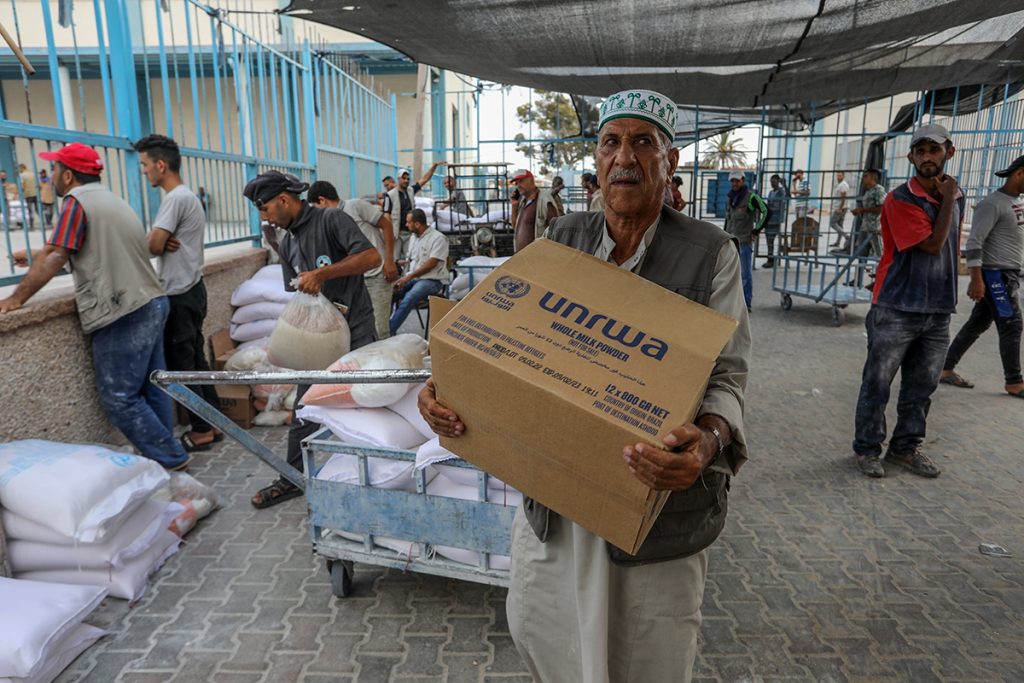The United Kingdom finds itself entangled in a heated debate over the possibility of deploying troops to aid in humanitarian efforts in Gaza. Amidst escalating tensions, the prospect has drawn sharp criticism from some quarters of the political spectrum, while others advocate for a cautious approach.
At the heart of the discussion lies a proposal to utilize UK forces in delivering much-needed aid to Gaza, where the humanitarian situation has reached dire levels. The proposal, however, has sparked concerns and raised questions regarding the feasibility and implications of such a deployment.
The UK government has been urged to exercise caution, with some Members of Parliament (MPs) labeling the idea as “completely insane.” Opposition figures, including Labour’s shadow defence secretary, have sought clarity from the government regarding reports suggesting the deployment of UK troops for aid delivery on the ground in Gaza.
Meanwhile, Defence Minister Leo Docherty has refrained from commenting on speculation surrounding the potential role of UK forces in the aid operation. The government’s silence on the matter has only fueled further debate and speculation within political circles.
The proposal comes amidst efforts by the United States military to construct a large floating causeway off the coast of Gaza to facilitate the delivery of humanitarian aid. The ambitious project aims to address the pressing humanitarian crisis in the region, with US troops spearheading the construction efforts.
While the US military is expected to play a significant role in the aid operation, the identity of the “significant partner” tasked with driving trucks down the pier remains undisclosed. Speculation abounds regarding the potential involvement of UK forces in this crucial aspect of the operation.
Amidst growing uncertainty, concerns have been raised regarding the practicality and safety of deploying UK troops in Gaza. Tory MP Sir Julian Lewis has cautioned against the idea, suggesting that alternative means of aid distribution, involving moderate Arab neighboring states, should be explored.
Similarly, Defence Committee Chair Sir Jeremy Quin has emphasized the importance of ensuring adequate protection for UK forces in any potential deployment scenario. The debate underscores the complexities and risks associated with military involvement in humanitarian operations, particularly in conflict-ridden regions such as Gaza.
In response to mounting scrutiny, Liberal Democrat’s defence spokesperson Richard Foord has called for a parliamentary debate and vote on the subject before any decision is made regarding troop deployment. The demand reflects growing calls for transparency and accountability in matters of national security and foreign policy.
Former Labour leader, Jeremy Corbyn, now an independent MP, has sought assurances from the government that British troops will not be deployed on the ground in Gaza or the West Bank. His concerns echo broader apprehensions regarding the potential escalation of conflict and the risks inherent in military intervention.
As the debate rages on, the humanitarian crisis in Gaza continues to escalate, with the United Nations warning of an imminent famine without urgent action. The region has witnessed a surge in casualties, with thousands of lives lost since the onset of the conflict.
Against this backdrop of uncertainty and apprehension, the UK government faces mounting pressure to tread cautiously in its approach to the Gaza aid operation. The decision regarding troop deployment will undoubtedly shape the UK’s role in addressing one of the most pressing humanitarian crises of our time.


